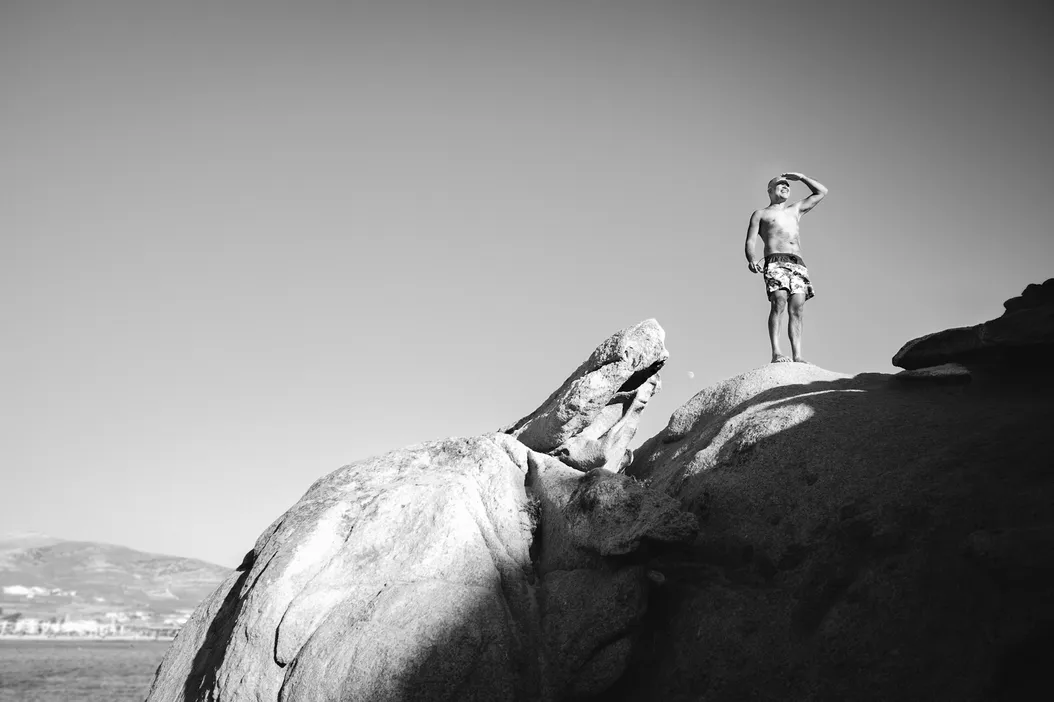
Humans are unique mammals in that we typically live long enough to see three generations. This is a fantastic mechanism for the transfer of culture and knowledge. But the cost of that mechanism is watching the people who gave you life and shaped you, fade away.
Over the past few years, conversations with friends have shifted to sick parents, dying parents, dead parents. I should have known something was up. But on reflection, this new phase is something I couldn’t have prepared for.
My father was fine until 18 months ago, when at the age of 74, he started becoming forgetful and withdrawn. Morning walks through his village in Luxembourg became a shuffle around our block, until they stopped altogether. His short-term memory deteriorated. He could spend hours staring at the floor. He no longer asked about my kids or my work. He wasn’t unhappy, just distant and diminished. His world had shrunk.
Fortunately, this wasn’t typical dementia. A neurologist identified symptoms of hydrocephalus — a condition where excess fluid pressures the brain. (Studies suggest that 5-10% of dementia cases might actually be misdiagnosed hydrocephalus.)
The good thing with this condition is that unlike many forms of dementia, there’s a fix. After much urging of doctors and waiting for appointments, my father went in for elective brain surgery on May 13. It was a one-hour procedure to install a valve under the skull, which drains away the excess fluid.
The operation went well, and the next day—the next day!—the difference was dramatic. My father was sharper than he had been in months, walked better than he had in months. We went for hospital coffee and cake. He asked me about politics and business; he FaceTimed my kids. I flew back to Greece the following day, amazed at his progress and thankful for the sci-fi-like marvels of medicine.
But life doesn’t work like that. As I landed at my stopover in Munich, I called the hospital and found that everything had blown up.
My father had had a seizure, seven minutes long. This was a complication of the brain operation, rare but not impossible. I took the next flight back to Luxembourg.
Now, a seizure isn’t a major problem by itself; it’s usually manageable. But when I arrived at the hospital, I found my father pale, confused and racked with pain. And for two days he slid downhill, his condition deteriorating with each hour until he was hardly responsive. Family members started arriving from abroad. I didn’t expect him to survive another day.
Fortunately, at our insistence, the hospital x-rayed my father and quickly learned what was going on. Apparently, during the seizure, thrashing around on the floor of his room, he had incurred catastrophic injuries. He had fractured his pelvis, tailbone, and two vertebrae, and was bleeding internally.
Such fractures are extremely rare, occurring in only 0.25% to 2.4% of patients who have seizures. But that’s what had happened.
A month and a half has passed since his brain operation, and my father has only just emerged from intensive care. There have been multiple surgeries, complications, medication (lots), and side effects (lots). Not to mention all the family stress. The doctors expect him to walk again, but it’s going to be a long recovery that will take months.
My father’s care has required me and my immediate family to refocus our priorities. It has created lots of mini crises I couldn’t have anticipated. And it has required me to spend considerable effort on logistical and administrative issues I never thought would need so much attention.
As a result, I’ve had to step back from much of my activism and consulting work. I’ve been off social media. I’ve stopped writing articles and hosting debates and doing podcasts. The timing hasn’t been great—DiEM25 was in the middle of an election campaign, my family is moving to Athens, and vital activist projects are languishing. But it was unavoidable. Life got in the way.
But although the past month has felt like six, it hasn’t all been bad.
I’ve been incredibly grateful: for public healthcare, for doctors who are human first and take the time to explain things and answer your questions as you’re sobbing in their offices. For family (especially the doctors in my family), and consumer technologies like messages and FaceTime that have allowed us, no matter how dispersed, to come together and plan and react.
For the ease with which everyday people can access medical knowledge (I’ve learned more about neurology, orthopaedics, and internal medicine than I ever thought I would.) For friends who helped me out in ways big and small. For understanding colleagues. For meditation and the short walks in nature that have kept me sane.
And of course for my wife and kids, for their patience with the situation and their endless help in making it all more manageable.
We expect more challenges, but my father is now out of the acute phase. With his health improving, I’ll be transitioning slowly back into my work, attending to things I’ve long neglected. Starting with a livestream next week and my writing here on Subvrt.
For now, thanks for reading. And take good care.



